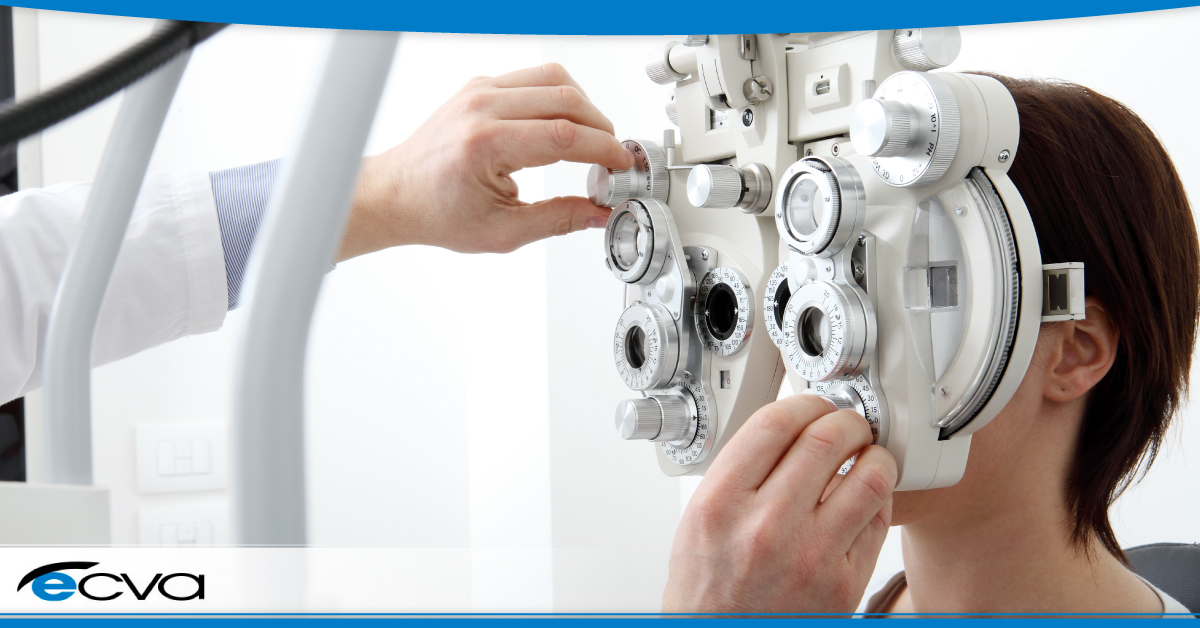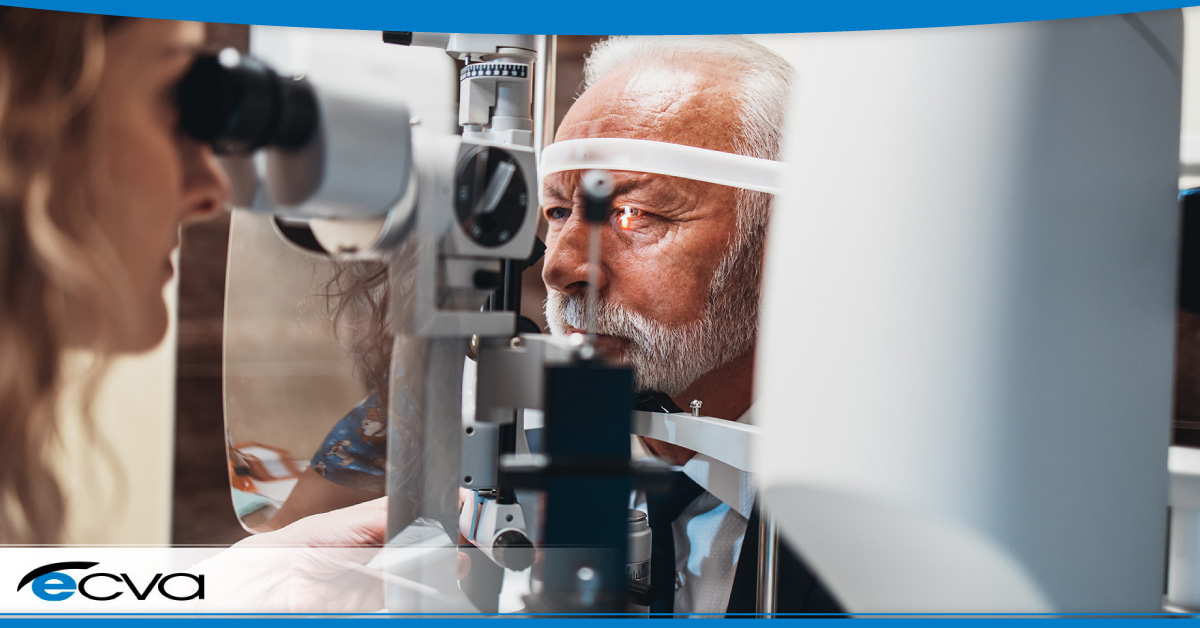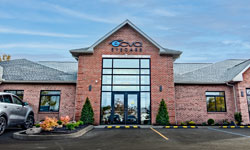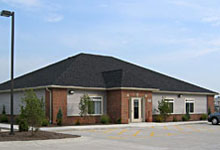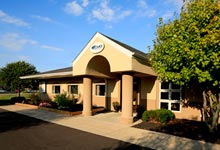Protecting your vision and the health of your eyes is essential. However, there are two types of professionals available: optometrists and ophthalmologists. While both dedicate their lives to preserving and enhancing vision, they possess distinct roles, training, and areas of expertise. Understanding the differences between these two professions is crucial for making informed decisions regarding eye health.
Both Buffalo ophthalmologists and optometrists offer valuable services. Let’s explore the skills and disparities between the two and when to visit each.
What is the Role of an Optometrist in Buffalo, NY
Optometrists play a pivotal role in the primary care of your eyes, focusing on vision care and the health of these structures. Here’s a breakdown of their responsibilities, scope of practice, and services offered:
- Definition and Role of an Optometrist
Optometrists are healthcare professionals who specialize in examining, diagnosing, and treating various eye conditions and diseases. They are trained to prescribe corrective lenses, such as glasses and contact lenses, and medications for specific eye problems. Optometrists also guide maintaining optimal eye health through lifestyle changes and preventive measures.
- Scope of Practice
Optometrists are proficient in conducting comprehensive eye exams to assess visual acuity, eye coordination, and overall eye health. They diagnose refractive errors like myopia, hyperopia, and astigmatism and prescribe appropriate corrective measures. Additionally, they manage conditions such as dry eye syndrome, glaucoma, and diabetic retinopathy, often collaborating with other healthcare professionals for comprehensive patient care.
- Services Offered
Optometrists offer an array of services, including routine eye exams, vision correction, contact lens fitting and prescriptions, treatment of eye infections and injuries, management of chronic eye conditions, and pre- and post-operative care for certain eye surgeries.
What is the Role of an Ophthalmologist in Buffalo, NY
In contrast to optometrists, ophthalmologists are medical doctors specializing in diagnosing, treating, and managing eye diseases and disorders. Let’s explore their role, scope of practice, and services provided:
- Definition and Role of an Ophthalmologist
Ophthalmologists are physicians who undergo extensive medical training, including medical school, internship, residency, and often fellowship in a subspecialty of ophthalmology. They are qualified to provide comprehensive eye care, from routine eye exams to surgical interventions for complex conditions.
- Scope of Practice
Ophthalmologists are trained and equipped to diagnose and treat a wide range of eye diseases and disorders, including cataracts, glaucoma, macular degeneration, retinal diseases, corneal conditions and more. They perform surgical procedures such as cataract surgery, LASIK, retinal detachment repair, and corneal transplants, among other procedures. Ophthalmologists may also specialize in areas such as pediatric ophthalmology, neuro-ophthalmology, or oculoplastic surgery.
- Services Offered
Ophthalmologists provide comprehensive eye care services, including diagnostic testing, medical treatment, surgical interventions, and ongoing management of eye conditions. They offer specialized expertise in treating complex eye diseases and performing advanced surgical procedures to restore or improve vision.
Key Differences Between Optometry and Ophthalmology in Buffalo, NY
While optometrists and ophthalmologists share a common goal of preserving eye health, several distinctions set them apart:
- Educational Background and Training
Optometrists typically complete a Doctor of Optometry (OD) degree program, which involves four years of undergraduate study followed by four years of optometry school. Ophthalmologists, on the other hand, are medical doctors (MDs) or doctors of osteopathic medicine (DOs) who undergo extensive medical training, including medical school, residency, and often a fellowship in a subspecialty of ophthalmology.
- Scope of Practice and Services
Optometrists primarily focus on vision care and routine eye health, offering services such as eye exams, vision correction, and management of common eye conditions. Ophthalmologists have a broader scope of practice, encompassing medical and surgical management of eye diseases, specialized treatments, and surgical interventions for complex conditions.
- Patient Care and Referral Process
Optometrists often serve as the first point of contact for patients seeking routine eye care or experiencing common eye problems. They may refer patients to ophthalmologists for specialized treatment or surgical interventions when necessary. Ophthalmologists collaborate with optometrists and other healthcare professionals to provide comprehensive care for patients with complex eye conditions.
- Collaborative Efforts
Optometrists and ophthalmologists frequently collaborate to ensure optimal patient outcomes. They may work closely together to co-manage patients undergoing surgical procedures, monitor the progression of certain eye conditions, or provide interdisciplinary care for patients with systemic health issues affecting the eyes.
When to Visit an Optometrist in Buffalo
Optometrists are your go-to professionals for routine eye care, vision correction, and management of common eye conditions. Consider scheduling an appointment with an optometrist for the following reasons:
- Routine Eye Exams and Vision Correction
Regular eye exams are essential for maintaining good eye health and detecting potential problems early. Optometrists can assess your vision, screen for eye diseases, and prescribe corrective lenses to improve visual acuity.
- Contact Lens Fitting and Prescription
Suppose you wear contact lenses or consider them an alternative to glasses. In that case, optometrists can perform a comprehensive eye exam and fit you with contact lenses that suit your prescription and lifestyle.
- Management of Common Eye Conditions
Optometrists can diagnose and manage various eye conditions, including dry eye syndrome, conjunctivitis (pink eye), allergies, and minor injuries. They can provide treatment options or refer you to an ophthalmologist for further evaluation if needed.
When to See an Ophthalmologist in Buffalo
Buffalo ophthalmologists specialize in diagnosing and treating complex eye diseases, performing surgical interventions, and providing specialized care for advanced conditions. Consider consulting an ophthalmology practice in Buffalo for the following reasons:
- Diagnosis and Treatment of Eye Diseases and Disorders
Suppose you have been diagnosed with an eye disease or disorder such as cataracts, glaucoma, macular degeneration, or diabetic retinopathy. In that case, an ophthalmologist can provide expert evaluation, medical treatment, and ongoing management.
Buffalo ophthalmologists excel in diagnosing and treating a myriad of eye diseases and disorders. They utilize advanced diagnostic tools and techniques to accurately assess conditions such as cataracts, glaucoma, macular degeneration, diabetic retinopathy, and retinal detachment. Once diagnosed, ophthalmologists develop personalized treatment plans tailored to each patient’s needs, which may include prescription medications, laser therapy, or surgical interventions. Their expertise in managing complex eye conditions ensures patients receive the highest quality of care to preserve vision and enhance overall eye health. Consulting an ophthalmologist to diagnose and treat eye diseases and disorders ensures comprehensive evaluation and effective management strategies.
- Surgical Interventions
Ophthalmologists are skilled in performing a wide range of surgical interventions to address various eye conditions. From routine procedures like cataract surgery to more complex surgeries such as retinal detachment repair and corneal transplants, ophthalmologists utilize advanced surgical techniques and technology to achieve optimal outcomes. Additionally, they specialize in refractive surgeries like LASIK and PRK to correct vision problems such as nearsightedness, farsightedness, and astigmatism. Patients can trust in the expertise of ophthalmologists to deliver safe and effective surgical care, helping to restore vision, alleviate discomfort, and improve overall quality of life. Seeking surgical intervention from an ophthalmologist ensures access to specialized expertise and state-of-the-art treatment options.
- Specialized Care for Complex Eye Conditions
Ophthalmologists provide specialized care for complex eye conditions, offering expertise in diagnosing and managing challenging cases that require intricate treatment approaches. These conditions may include rare disorders, advanced stages of common eye diseases, or cases with complicating factors that necessitate specialized attention.
For example, if you have a complex or rare eye condition requiring specialized expertise, such as pediatric eye disorders, neuro-ophthalmic conditions, or ocular oncology, an ophthalmologist with expertise in that area can provide tailored treatment and management. In pediatric ophthalmology, ophthalmologists are adept at diagnosing and treating eye conditions unique to children, such as amblyopia (lazy eye), strabismus (misalignment of the eyes), and congenital cataracts. These doctors employ specialized techniques and tools to assess visual development and address issues that may impact a child’s vision for life.
Ophthalmologists specializing in ocular oncology provide comprehensive care for patients with eye tumors, including melanoma, retinoblastoma, and ocular lymphoma. They employ advanced diagnostic imaging, genetic testing, and treatment modalities such as radiation therapy, chemotherapy, or surgical removal to manage these complex conditions.
In addition to these subspecialties, ophthalmologists may focus on cornea and external diseases, glaucoma, retina and vitreous, or oculoplastic surgery. Each subspecialty requires additional training and expertise to deliver specialized care tailored to patients with unique needs related to complex eye conditions.
In addition to these subspecialties, ophthalmologists may focus on areas such as cornea and external diseases, glaucoma, retina and vitreous, or oculoplastic surgery. Each subspecialty requires additional training and expertise to deliver specialized care tailored to the unique needs of patients with complex eye conditions.
Patients with complex eye conditions benefit from the multidisciplinary approach adopted by specialized ophthalmologists, who collaborate with other healthcare professionals to provide comprehensive care. By harnessing the latest advancements in technology and treatment modalities, ophthalmologists strive to improve outcomes, preserve vision, and enhance the quality of life for individuals facing challenging eye conditions. Seeking specialized care from an ophthalmologist ensures access to the expertise and resources necessary to manage complex eye conditions and optimize visual health effectively.
For All of Your Eye Health Needs Contact the Top Optometrists and Ophthalmologists in Buffalo, NY
If you seek out ophthalmology in Buffalo, call on the experienced, caring professionals at Eye Care & Vision Associations. We are highly dedicated to preserving and enhancing your vision. We offer a variety of locations and are staffed by top clinicians along with a caring and professional administrative and support team. You can reach us at 716-631-EYES (3937).


